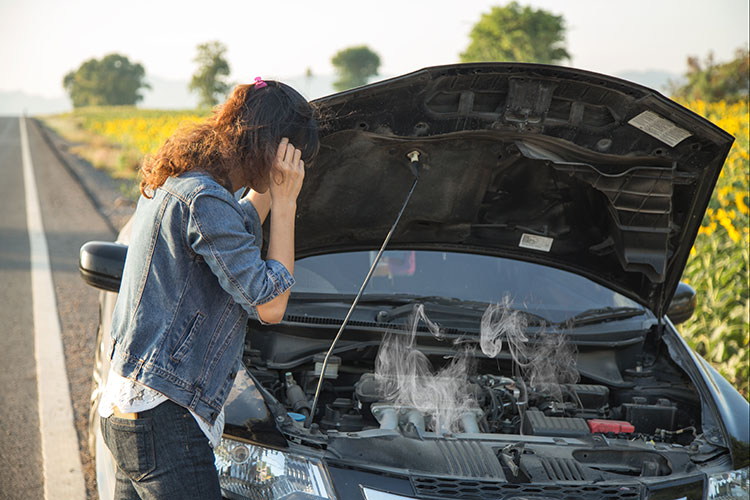Check under the hood to prevent problems
Summertime is nearly here in Savannah, and that means sunshine and good times, but it also means high temperatures. The majority of summer breakdowns are due to overheating. And with many auto repair shops full up with vehicles waiting for repairs, it’s important to take preventative measures when you can. If the engine overheats, it can suffer serious internal damage that requires expensive repairs and can ruin a summer vacation.
You can avoid your vehicle overheating in the first place by checking off the following cooling system tasks before embarking on your next summer trip.
How it Works
Your car’s cooling system has many parts, including a radiator, fan, water pump, thermostat, cooling jackets and a heater core. Various parts are connected by hoses. These hoses pick up heat and disburse it through the radiator, and also send coolant through passages in the engine block and head . As long as the car is running and the cooling system is working, then the circulation process continues.
To keep your cooling system running, you need to identify potential problems before they happen. You can increase the avoidance of issues by performing these safety checks:
1. CHECK YOUR COOLANT
A lack of coolant will definitely not avoid your vehicle overheating. That means it’s important to check the white coolant-recovery tank to ensure proper fluid level. If your owner’s manual indicates that it’s time to flush the system, then do so. And if your system has corrosion or contaminants in it, you need to flush it immediately.
2. INSPECT YOUR HOSES
If you may have sufficient coolant but corroded or leaking hoses, then you still run a risk of your car breaking down. Coolant leakage can result from cracked heater hoses and loose clamps or connections. An easy way to tell if you have a coolant leak is if you see a bright green puddle or stream underneath your car that is slippery to the touch. To physically check your hoses, wait until the engine is cool, squeeze the hoses with your thumb and forefinger near the clamps where failure most often occurs. Feel for soft or mushy spots. A good hose will have a firm yet pliant feel and no visible damage.
3. CHECK OIL
Even though engine oil is not directly part of the system to avoid your vehicle overheating, it is integral to keeping your car running. Engine oil serves as a lubricant by keeping the metal surfaces in the engine from grating together and tearing apart. Engine oil also transfers heat away from the combustion cycle. Make sure to top off the oil when it’s low. You should also check your owner’s manual, and change the oil and the oil filter at the interval it indicates.
4. INSPECT YOUR ACCESSORY BELT
Almost all cars and trucks built today have a single multi-grooved serpentine belt that drives the alternator, water pump, power-steering pump, and air-conditioning compressor. If a hose leaks coolant or the belt turning the water pump snaps, the cooling system is inoperable. The Car Care Council says chances of a V-belt failure rise dramatically after four years or 36,000 miles, while the critical point for a serpentine belt is 50,000 miles. Any belt should be changed when it shows signs of excessive wear.
An overheated car is no small matter. Besides leaving you stranded, overheating can cause damage to your car. Overheating can warp the cylinder head, contribute to head gasket failure or seize the engine. This can mean expensive repairs or even a complete engine replacement. Do yourself a favor and take the time to make sure your ride is summertime ready.
If in doubt, check with a qualified technician about any cooling problems, and always consult your owner’s manual for routine maintenance procedures.
DO YOU NEED COLLISION REPAIR IN SAVANNAH, GEORGIA?
If your car is damaged by road debris, call Hollingsworth Auto Service today at: 912.234.6651. We offer comprehensive auto body repair services to correct any dents, dings, or other damage caused by debris on the road.










